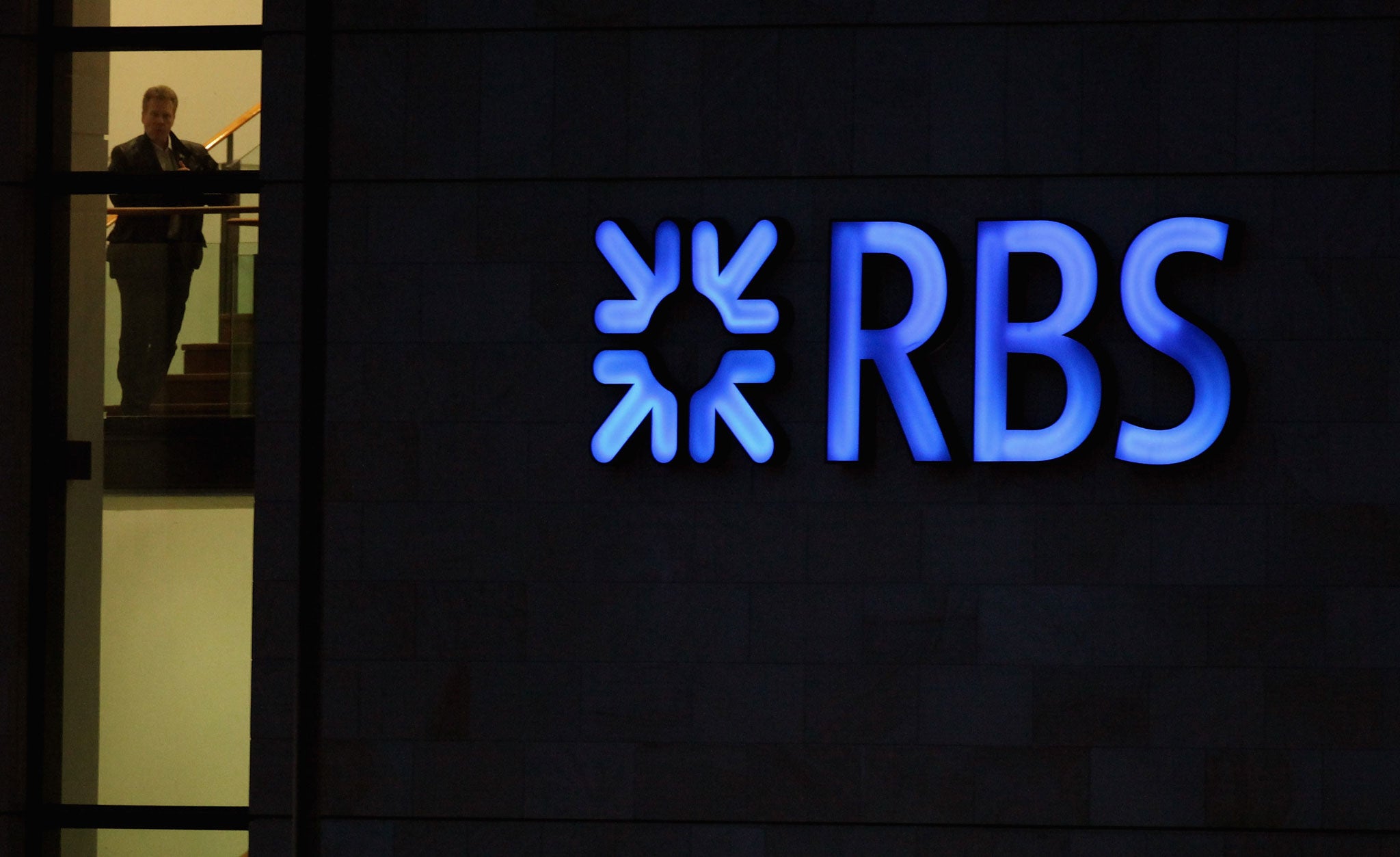We should not pay a penny of RBS’s fraud fine
The cost, which could rise above £300m, should come out of the bankers' bonus pool


When taxpayers rescued the Royal Bank of Scotland (RBS) in December 2008, eventually amassing an 82 per cent stake, it was assumed that from then onwards everything would be conducted in a clean and prudent manner. Unfortunately it wasn’t. An announcement that the bank has been fined hundreds of millions of pounds for the dishonest manipulation of the interest rates is imminent.
This corrupt trading took place for a number of years until 2010. It involved the now notorious Libor, the rate at which banks lend to each other, which had become a benchmark in financial markets. In other words, from 2008 to 2010 taxpayers were unwittingly financing an enterprise that was in part fraudulent. Believe it or not, the bank’s board says it was unaware of what was going on until told by regulators in 2011. There are none so blind as those who cannot see.
This is an extremely serious situation. It is one thing for taxpayers to have to bail out banks for years of reckless overtrading that was on a scale sufficient to bring down the whole financial system, it is quite another to find that, in one bank at least, some of the bad practices went on unchecked after the rescue.
Finding the cash
RBS is preparing its response. So should we. Public discussion of the matter before the announcement might make a difference whereas comment afterwards rarely changes things. The bank will need to answer two questions. Should the fine, which could be as much as £500m – perhaps much more – come out of shareholders’ funds, which is to say taxpayers’ funds, and if not, where could the money be found? And who should carry responsibility for the disaster? As it happens, boards of directors generally find it easier to handle financial liability than they do to apportion blame.
The obvious place to look for the funds required to pay the fine is the bonus pool, sums of money that executives are expecting to be added to their salaries for 2012. The pool is believed to amount to some £375m. Even that large figure might not cover the whole fine, but it would be a start. To many RBS managers, who had nothing whatever to do with the Libor scandal, this would seem very unfair. Which is why, presumably, leaks from the bank suggest that only some £150m of the bonus pool is likely to be used in this way. It would be even more unfair, however, for the fine to come out of taxpayers’ pockets.
Even so, the RBS board might respond, it would not serve shareholders’ interests if the total removal of bonuses for 2012 was to lead to the loss of talented staff. Actually, I would view this risk with equanimity. Large numbers of bankers have been made redundant in the past 12 months and there are further cuts to come. It would be relatively easy to make good staff losses. To me, then, the conclusion is clear: the whole of the 2012 bonus pool should go towards paying the fine.
As to taking responsibility for the fiasco, there are already indications that the board is seeking to apply the noxious rule that whatever goes wrong, the board is never to blame. It floats above things, it cannot see how business is handled on the ground, its eyes are fixed on far horizons. How often have various parliamentary committees heard this tale? Bob Diamond, the former chief of Barclays, gave a masterclass in “not knowing”.
Who jumps?
So, true to form, leaks suggest that the RBS board is considering whether two non-board members – the head of the investment bank and his deputy – should depart. Neither had any involvement in the Libor affair, but apparently they may be forced to bear responsibility for the abuses perpetrated by more junior bankers. This is wrong. The board has an audit committee that has a duty to review the “controls and procedures established by management for compliance with regulatory and financial reporting requirements”.
The board also has a risk committee, which is charged with “providing oversight and advice to the Board in relation to current and potential future risk exposures” of the bank. Either one of these committees should have made it its business to enquire whether the bank was trying to manipulate Libor dishonestly. After all, they were on notice that something could be wrong. On 29 May 2008, The Wall Street Journal had published a study suggesting that banks might have understated borrowing costs they reported for Libor during the 2008 credit crunch. And in September 2008, a former member of the Bank of England’s Monetary Policy Committee, Willem Buiter, described Libor as “the rate at which banks don’t lend to each other”, and called for its replacement.
So I find it obvious that some board members should depart along with the head of the investment bank and his deputy. Any current member of the board who sat on either the audit committee or the risk committee while the events that led to the imposition of the large fine were taking place should also walk the plank.
Join our commenting forum
Join thought-provoking conversations, follow other Independent readers and see their replies
Comments
Bookmark popover
Removed from bookmarks